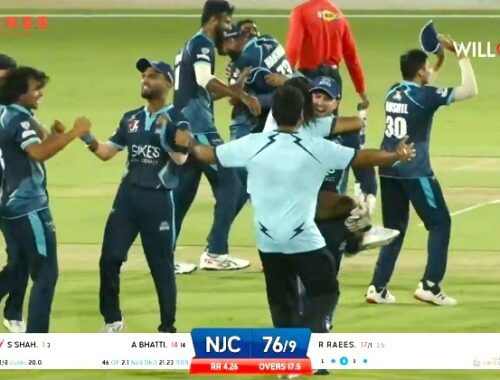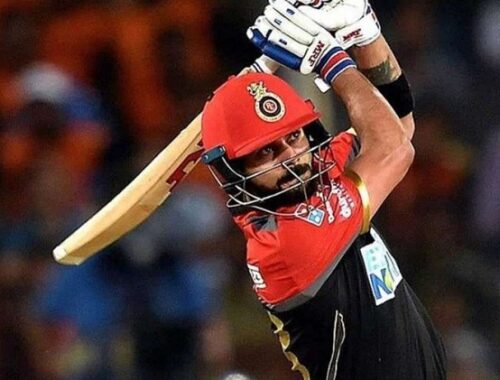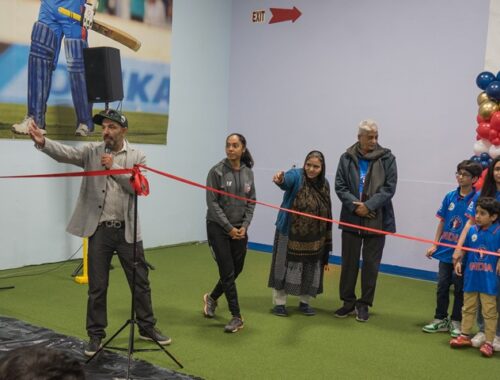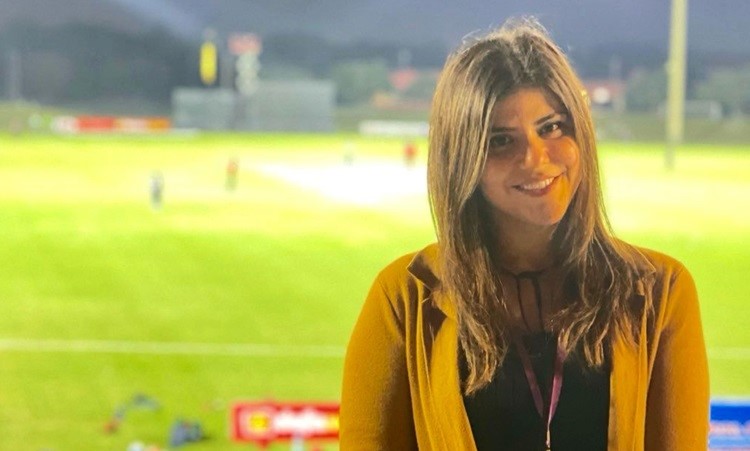
Brashna Kasi: Quetta, Karachi, and Canastota
In the time I've been writing about cricket, I've had the chance to meet a lot of other members of the cricket media. And since the American cricket media only goes about nine deep, most of the folks I've met have come from backgrounds far different from my own. But that's what makes it so fun.
Even more fun, though, is when you discover you share fragments of a similar past with someone.
I had the chance to sit down and talk Boston-to-Karachi with Pakistani cricket writer, Brashna Kasi. Brashna has been covering sports for the Pakistani press for years. But way more importantly, she's also a graduate of Syracuse University's Newhouse School of Public Communications. And so am I!
The Newhouse School is one of the top communications schools in the country. A ridiculous percentage of the people involved in the sports media are Newhouse grads.
And this is the first time two of them have ever talked publicly about cricket.
How did you get into cricket and cricket writing?
"I was always interested in cricket. I used to watch a lot of cricket and I always knew I wanted to become a cricket reporter or someone in sports media. I grew up in Quetta, which is the capital of Balochistan and closer to the Afghanistan side of the border. It's not a very liberating place for women to have a career or to work. It also wasn't easy to communicate what your interests are to your parents, because they don't take you seriously. They think you're kidding or joking if you mention sports.
So, mainly, my journey covering cricket started professionally or academically in Karachi. Before that, I used to do mini blogs on Instagram or a cricket blog on WordPress or something like that. I used to follow South Africa Cricket a lot back in the days, so I'd to write about that. But when I moved to Karachi for my master's, that's when I knew I had a shot at covering cricket because Karachi is a lot more developed than Quetta. There's a lot more cricket happening here.
I was studying journalism, so I tried to do a lot of my assignments based on sports. I remember when World Soccer Stars had an event in Karachi and I covered it. I got media credentials for that and I covered a press conference of Ricardo Kaka and Carlos Puyal and Luis Figo. And they were all these legendary players and I couldn't believe that I was actually covering it for a school assignment. It was a huge deal. So, I was lucky and I tried to find any opportunity I could within Karachi."
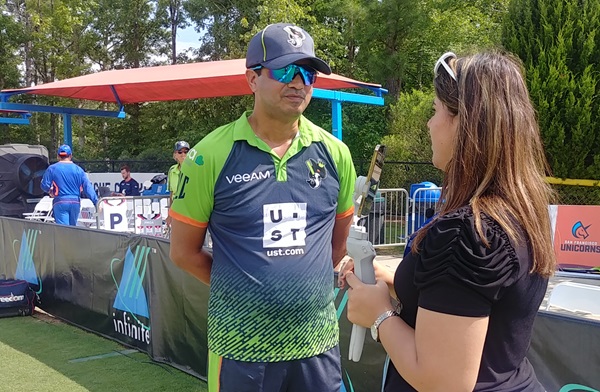
While working on her master's, Brashna started to work for Geo TV, one of the biggest media houses in Pakistan. "I got to cover a lot of cricket, including Pakistan versus South Africa series and the fifth season of the PSL. It was a great experience. I made a lot of connections and it was my entry point into covering cricket professionally."
So, what possesses someone to go from a country that's crazy about cricket but not so big on sports media to a country that's got massive sports media, but has very little idea of what cricket is all about?
"I wanted to specialize in sports journalism, even during my first master's and I never had that opportunity. So, when I got the Fulbright Scholarship, I was like, oh, I want to specialize in sports journalism. The master's program that I was studying in Pakistan is the only graduate journalism program in the entire country -- not just in Karachi. Journalism, especially as a graduate program, is not that common here currently. Not a lot of people go and study it -- let alone specializing in sports. So, my program in Pakistan was pretty general. When I was in the US and I saw so many people being so passionate about football or ice hockey or basketball, I think I envied that, to be honest, because I could see that they're passionate about it and they have like-minded people who care about the game."
"I was so shocked when I visited a few American high schools. The quality of the sports there and how much students participate was so inspiring. It was so exciting to see that, because I never got to experience the same thing while studying in Pakistan."
How did you end up covering Major League Cricket?
"Newhouse does a great good job in supporting their students following their dreams. Unfortunately, there wasn't much cricket being played in the US, so there wasn't much my professors could do. They were very supportive, but they didn't really understand what cricket was. So, when Major League Cricket was happening, I tried my best to make sure that I could somehow relate it to my program because that was the only way for me to actually be a part of it. And I used it as my graduate internship. Basically, me covering Major League Cricket was also a three-credit internship that I did for my program at Newhouse.
And I also got the experience of my life in that I had access to so many players that I grew up watching, like Shane Watson or Graeme Smith. They're basically coaches or commentators at this point, but still it was great to being able to talk to them and see them and have that access. The press conferences were really easy. You're really visible because there were not a lot of media people there asking questions. So, it was a great place for you to build your network."
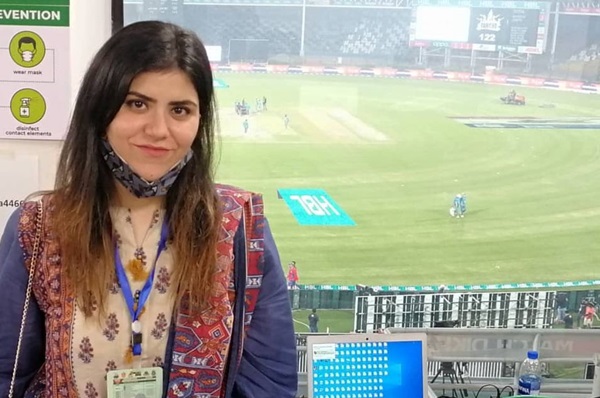
What's next?
"I've been freelancing for dawn.com, which has always been my dream place in Pakistan to work. It's a huge media house. They have a newspaper, they have magazines, they have websites, they have broadcast channels. I've had the opportunity to write for them since last year. I've particularly worked with the EOS magazine. It's a weekly magazine and I've done commentary pieces on different series, like back when Pakistan played New Zealand or England or the Asia Cup. I think I did two stories for them on Major League Cricket, as well, focusing mainly on Pakistan affairs, of course."
And what are your thoughts about Pakistani cricket?
"The upcoming year is going to be mainly focused on the shortest format -- on the T20s. So, I think it's going to be good because the only good team Pakistan has currently is the T20 team and that's mainly because of PSL. There's not much incentive for the players in the longest format. The state of Pakistan in the longer formats, particularly in tests, there's not a lot of input being done to promote the game in those formats. But I think in T20s, it's good. It's competitive. You see new talent emerging. You see they're putting up a fight. Because we have the T20 World Cup coming and we have PSL coming, I think things are going to be okay, hopefully. But with Pakistan, you never know. It's unpredictable. You never know. You can't judge them."
© CricAmerica.com/Steve Steinberg 2024


